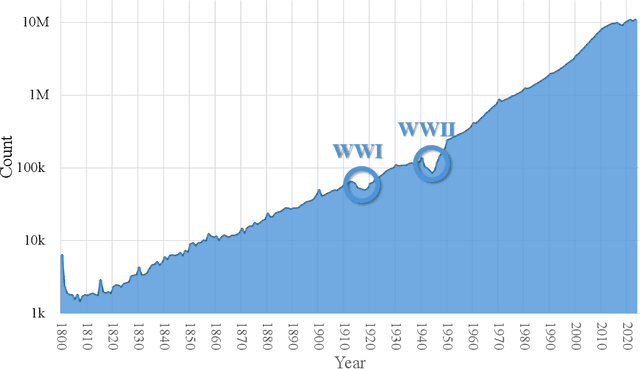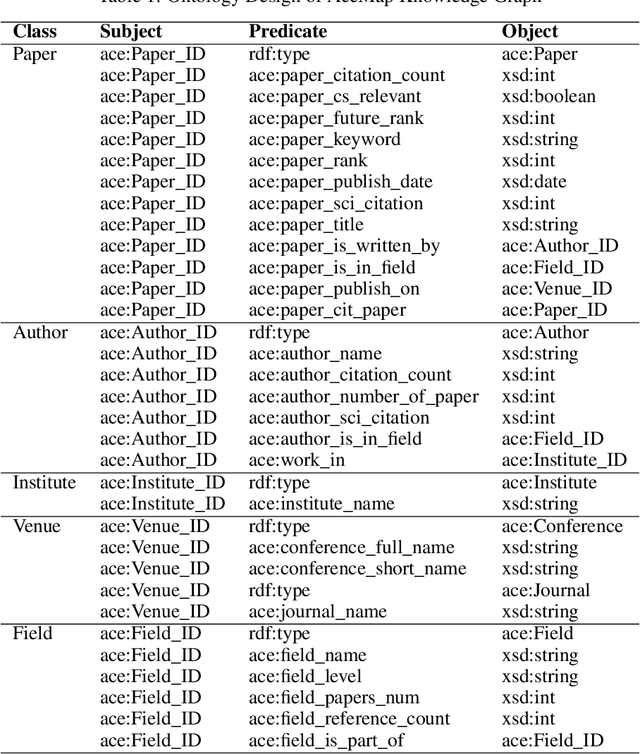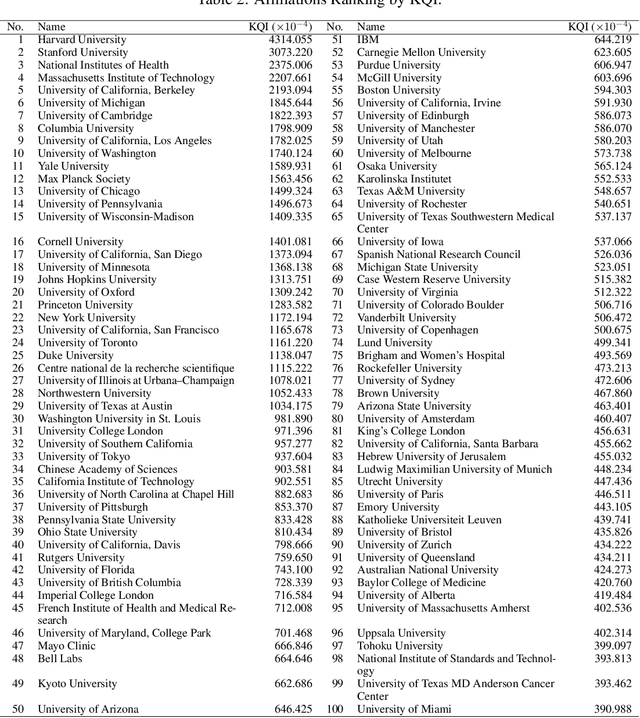Xingli Wang
AceMap: Knowledge Discovery through Academic Graph
Mar 05, 2024



Abstract:The exponential growth of scientific literature requires effective management and extraction of valuable insights. While existing scientific search engines excel at delivering search results based on relational databases, they often neglect the analysis of collaborations between scientific entities and the evolution of ideas, as well as the in-depth analysis of content within scientific publications. The representation of heterogeneous graphs and the effective measurement, analysis, and mining of such graphs pose significant challenges. To address these challenges, we present AceMap, an academic system designed for knowledge discovery through academic graph. We present advanced database construction techniques to build the comprehensive AceMap database with large-scale academic publications that contain rich visual, textual, and numerical information. AceMap also employs innovative visualization, quantification, and analysis methods to explore associations and logical relationships among academic entities. AceMap introduces large-scale academic network visualization techniques centered on nebular graphs, providing a comprehensive view of academic networks from multiple perspectives. In addition, AceMap proposes a unified metric based on structural entropy to quantitatively measure the knowledge content of different academic entities. Moreover, AceMap provides advanced analysis capabilities, including tracing the evolution of academic ideas through citation relationships and concept co-occurrence, and generating concise summaries informed by this evolutionary process. In addition, AceMap uses machine reading methods to generate potential new ideas at the intersection of different fields. Exploring the integration of large language models and knowledge graphs is a promising direction for future research in idea evolution. Please visit \url{https://www.acemap.info} for further exploration.
IdeaReader: A Machine Reading System for Understanding the Idea Flow of Scientific Publications
Sep 27, 2022

Abstract:Understanding the origin and influence of the publication's idea is critical to conducting scientific research. However, the proliferation of scientific publications makes it difficult for researchers to sort out the evolution of all relevant literature. To this end, we present IdeaReader, a machine reading system that finds out which papers are most likely to inspire or be influenced by the target publication and summarizes the ideas of these papers in natural language. Specifically, IdeaReader first clusters the references and citations (first-order or higher-order) of the target publication, and the obtained clusters are regarded as the topics that inspire or are influenced by the target publication. It then picks out the important papers from each cluster to extract the skeleton of the idea flow. Finally, IdeaReader automatically generates a literature review of the important papers in each topic. Our system can help researchers gain insight into how scientific ideas flow from the target publication's references to citations by the automatically generated survey and the visualization of idea flow.
 Add to Chrome
Add to Chrome Add to Firefox
Add to Firefox Add to Edge
Add to Edge